Tomorrow's Schools are undergoing a major review. So how does this affect John McGlashan College?

New Zealand schools are currently undergoing the most significant governmental review in 30 years. According to the terms of reference, the review will consider "the fitness of our schooling system to equip all learners for the 21st century", and "will look at the changes needed in governance, management and administration to better support all learners throughout their schooling.
"Tomorrow’s Schools” were set up in 1989, each to run under its own elected Board of Trustees, but by the 1990s, the competition between high performing schools and struggling schools had become a significant problem. This issue resulted in the introduction of a new funding model based on socioeconomic decile ratings and school zoning which would ensure that pupils could attend their local school. No government has completed such an extensive review since these changes occurred. In ensuing years, although many schools have thrived, others have not, and some school leaders regard it as high time for a change.
Renowned educator Bali Haque is overseeing the Independent Taskforce which will look at the way schools are led, organised, managed and governed across the school system. Since the last review, there have been many changes to curriculum and assessment, especially with the introduction of NCEA.
The task force will investigate:
• The role of Boards of Trustees in dealing with overcrowding and, more importantly, their role in ensuring that every student has a top quality education no matter where they live.
• How teachers are supported in their professional development and how to develop leadership.
• The fact that while many schools are succeeding, some are still failing.
• The call for more support from Ministry of Education regional offices.
• How to resolve the issue of competition and create greater co-operation between schools.
The Government has a desire to get schools to collaborate more. There has been dissatisfaction with a number of controversial issues in the past including National Standards, the introduction of NCEA and attempts to bulk fund schools for all expenses including salaries. These issues have divided teachers and the community. The current model is too dependent on effective Boards of Trustees, and some schools struggle to find sufficient parent candidates. It is widely reported that in some board elections, only 5-10% of parents will vote. School governance is a complex role, and we are asking volunteers to lead schools at night, after work and in their spare time without any real training. Some schools have been identified as requiring an additional layer of leadership.
In New Zealand we have fantastic teachers guiding the learning of young people; syndicates and departments doing stunning work and leading groups of students and staff, and excellent school leadership groups including principals and deputy principals, but there is no leadership of the wider system. It has been stated in educational circles, and I agree, that the better the standard of education across the country, the better our country will be. We can have two tracks of development, one where energy and resources are provided for the ten per cent of schools that are struggling, and the other, where schools like John McGlashan College continues to take independent responsibility for the educational outcomes of its students. John McGlashan College maintains exemplary governance processes within its Board of Trustees and Board of Proprietors, and we are incredibly fortunate with the calibre and expertise of our board members.
Potentially, other schools may opt into a system where skills and attributes could be provided to help guide their school in the right direction. This would give each school the option to take on additional support. McGlashan is very well placed to adapt to any mandated policy changes, and I have no doubt that we will be able to maintain outstanding educational opportunities for our students as we move into our second century of education.
Neil Garry
Principal
For further details, please visit:
http://www.education.govt.nz/ministry-of-education/consultations-and-reviews/tsr/

 Open Event Registration - Interested in enrolling?
Open Event Registration - Interested in enrolling? Employment opportunities - click if you're interested in working at McGlashan.
Employment opportunities - click if you're interested in working at McGlashan.